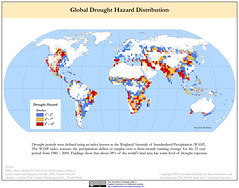Economic inequality among nations and other factors have contributed to a global food system in which billions are hungry or lacking crucial vitamins, whereas another billion are overconsuming, spawning a public health epidemic involving conditions such as diabetes and cardiovascular disease
Dear EarthTalk: I understand a recent government report concluded that our global food system is in deep trouble, that roughly two billion people are hungry or undernourished while another billion are overconsuming to the point of obesity. What’s going on?—Ellie Francoeur, Baton Rouge, La.
The report in question, “The Future of Food and Farming”, synthesized findings collected from more than 400 scientists spanning 34 countries and was published in January 2011 by the British government’s Department for Business Innovation & Skills. Its troubling bottom-line conclusion is that the world’s existing food system is failing half of the people on the planet.
Economic inequality among nations and other factors have contributed to a global food system in which a billion people are hungry (lacking access to sufficient amounts of macronutrients such as carbohydrates, fats and proteins), another billion suffer from “hidden hunger” (lacking crucial vitamins and minerals from their diet), while yet another billion are “substantially overconsuming,” spawning a new public health epidemic involving chronic conditions such as Type 2 diabetes and widespread cardiovascular disease.
The report, which was prepared by the research firm Foresight on behalf of the British government, also predicts that the cost of food worldwide will rise sharply in coming decades, increasing the likelihood of food-based conflicts and migration, and that people won’t be able to feed themselves without destroying the planet—unless we can transform the global food system on the scale of the industrial revolution.
Related articles
- You: ‘An industrial revolution for food’ (guardian.co.uk)
- How to feed 9 billion people: the future of food and farming (arstechnica.com)
- World needs global food system overhaul: report (physorg.com)









